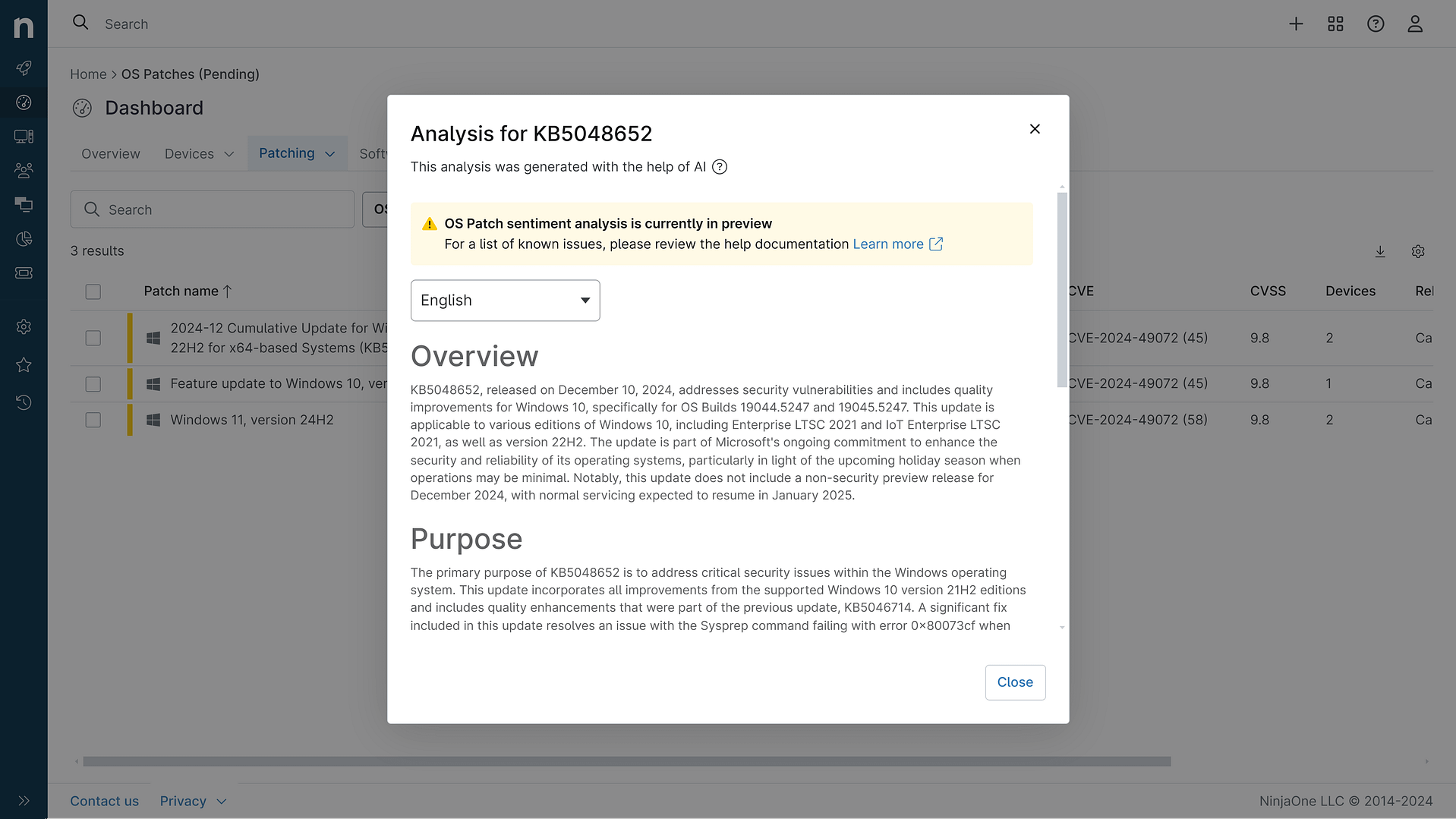KB5039891: Overview with user sentiment and feedback
Last Updated December 21, 2024
Probability of successful installation and continued operation of the machine
Overview
The KB5039891 update, released on July 9, 2024, is a Security and Quality Rollup for the .NET Framework 4.8 specifically targeting Windows Server 2008 R2 SP1. This update is crucial as it addresses a significant elevation of privilege vulnerability (CVE-2024-38081) that could allow remote code execution. The update also includes various quality and reliability improvements, particularly focusing on memory leak issues associated with AccessibleObjects in WinForms applications. Given that Windows Server 2008 R2 SP1 is now in extended security update support, this rollup is part of the necessary maintenance to ensure system security and stability.
General Purpose
The primary purpose of KB5039891 is to enhance the security and reliability of the .NET Framework 4.8 on Windows Server 2008 R2 SP1. This update addresses a critical vulnerability that could potentially allow attackers to execute arbitrary code remotely. Additionally, it resolves memory leak issues that have been reported in applications using WinForms, thereby improving overall application performance and stability. Users are encouraged to apply this update as part of their regular maintenance routines to ensure their systems remain secure and efficient.
General Sentiment
The general sentiment surrounding KB5039891 appears to be cautious but ultimately positive. Users recognize the importance of addressing security vulnerabilities, especially in an operating system that has reached the end of mainstream support. However, there are concerns regarding the breaking changes introduced by the update, particularly related to the System.IO.Path.GetTempPath method. While many users appreciate the improvements in reliability, some express frustration over the need for potential code changes in their applications to adapt to the new API behavior. Overall, the sentiment leans towards support for the update, provided users are prepared for the adjustments it necessitates.
Known Issues
- The update introduces breaking changes to the System.IO.Path.GetTempPath method, which may affect applications relying on its previous behavior.
- Users may need to implement code changes to accommodate the new API behavior, particularly if their applications are not designed to handle the changes introduced by the GetTempPath2 API.
- Temporary workarounds are available but are not recommended as they disable the security fix for the identified vulnerability.
Disclaimer: We take measures to ensure that AI-generated content is of the highest possible quality, but we cannot guarantee its accuracy and recommend that users do their own independent research. Generated on 2024-12-21 10:37 PM
